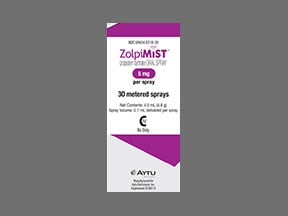
Zolpimist Coupons & Savings Card – Discount Prices from $356.89
My prescription
Edit
4.5ML of 5MG/ACT, Zolpimist (1 Bottle)
Select pharmacy

CVS
$385.24
COUPON PRICE
Walmart
$356.89
COUPON PRICE
Walgreens
$367.88
COUPON PRICE
Albertsons
$381.20
COUPON PRICEZolpimist savings card
Show this card to your pharmacist
Walmart
$356.89
BIN
ID
PCN
GRP
019876
LHFF81802B
CHIPPO
LHX
Powered by
More prescriptions for insomnia
More prescriptions for insomnia
Price history for Zolpimist
1 Bottle, 4.5ML of 5MG/ACT
Average retail price for Zolpimist
Average SaveHealth price for Zolpimist
Our price history data is based on aggregated prescription data collected from participating pharmacies in America. Our prescription data updates daily to reflect the latest price changes. If you notice a missing data point, it means there wasn't sufficient data available to generate a monetary value for that date.
*Retail prices are based on pharmacy claims data, and may not be accurate when we don't have enough claims.
Zolpimist dosage forms
Dosage Quantity Price from Per unit 4.5ML of 5MG/ACT 1 Bottle $356.89 $356.89 4.5ML of 5MG/ACT 2 Bottles $732.76 $366.38 4.5ML of 5MG/ACT 6 Bottles $2219.93 $369.99 4.5ML of 5MG/ACT 18 Bottles $6623.19 $367.95
| Dosage | Quantity | Price from | Per unit |
|---|---|---|---|
| 4.5ML of 5MG/ACT | 1 Bottle | $356.89 | $356.89 |
| 4.5ML of 5MG/ACT | 2 Bottles | $732.76 | $366.38 |
| 4.5ML of 5MG/ACT | 6 Bottles | $2219.93 | $369.99 |
| 4.5ML of 5MG/ACT | 18 Bottles | $6623.19 | $367.95 |
Has Zolpimist been discontinued?
As of the latest information available, Zolpimist has not been officially discontinued. However, availability can vary based on location and pharmacy stock. It is advisable to check with local pharmacies or healthcare providers for the most current information regarding its availability.
What is Zolpimist used for?
Zolpimist is used for the short-term treatment of insomnia, specifically to help with difficulties in falling asleep. It is an oral spray formulation of zolpidem, which is a sedative-hypnotic medication.
Is Zolpimist a controlled substance?
Yes, Zolpimist is a controlled substance. It is classified as a Schedule IV controlled substance in the United States, which indicates it has a potential for abuse and dependence, although it is lower compared to Schedule I, II, or III substances.
What is the generic for Zolpimist?
The generic name for Zolpimist is zolpidem tartrate.
What class of drug is Zolpimist?
Zolpimist is classified as a non-benzodiazepine hypnotic, specifically a sedative-hypnotic. It is used for the short-term treatment of insomnia.
